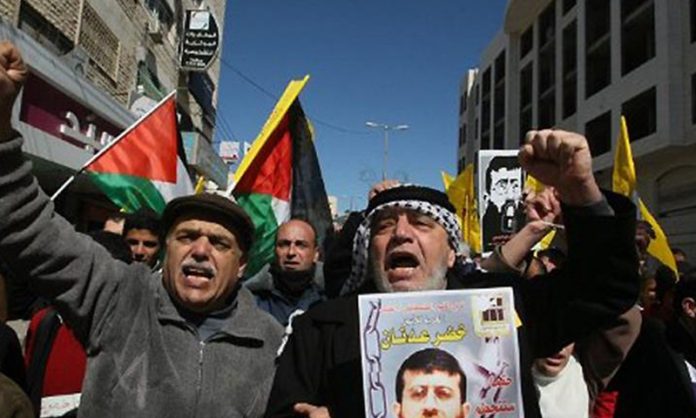The Great March of Return, a six-week protest near Gaza’s border with Israel, is a defiant act of non-violent resistance deeply rooted in the Palestinian struggle, says Al Jazeera’s senior political analyst, Marwan Bishara.
Tens of thousands of Palestinians have gathered near the Israeli border for a second week to demand they be allowed back to the lands they were forced from when Western powers created Israel in 1948.
“The Palestinians have seen a number of protests over the decades, some were armed, some were violent, and some were acts of terror,” Bishara said.
“But most were acts of civil disobedience, peaceful protests, like what we’ve seen today.”
He said Friday’s protests showed the Palestinians had matured politically, while the Israelis were busy stifling democracy by preventing Palestinians from the West Bank and other areas from joining their “brothers in Gaza”.
“It shows a maturity on behalf of the Palestinians to be embracing such peaceful, creative means, because last Friday, they were almost picnicking on the Israeli border. Erecting tents, chanting and singing songs.
“If that annoys Israel and brings this issue to the fore of the international community – that’s brilliant.”
Bishara then attacked Yossi Beilin, a former Israeli justice minister, who appeared on the network minutes earlier.
“Beilin was asking almost torturously again and again: ‘What do they want from us?’ After several decades of occupations, for a former Israeli politician, a peacenik, to ask such a question is amazing.
“I’ll answer Beilin. I think the Palestinians want justice. The Palestinians want freedom.
“The people in Gaza want freedom from drones.
“They want freedom from shelling. They want freedom from bombardment. They want freedom from the blockade.
“They don’t want crumbs from the Israeli table. They want to be able to share their historical land – Palestine – with the Israelis on an equal footing.”
The Great March of Return is planned to continue until May 15, the day Palestinians call the Nakba or Catastrophe, marking the displacement of hundreds of thousands of Palestinians in the conflict surrounding the creation of Israel in 1948.
Palestinians have long demanded that as many as five million direct descendants of the original Palestinian refugees be given the right to return to their ancestral homes.
Israel rules this out, arguing that the return of Palestinians to what is now Israel would outnumber its Jewish majority.
COURTESY: AL JAZEERA





